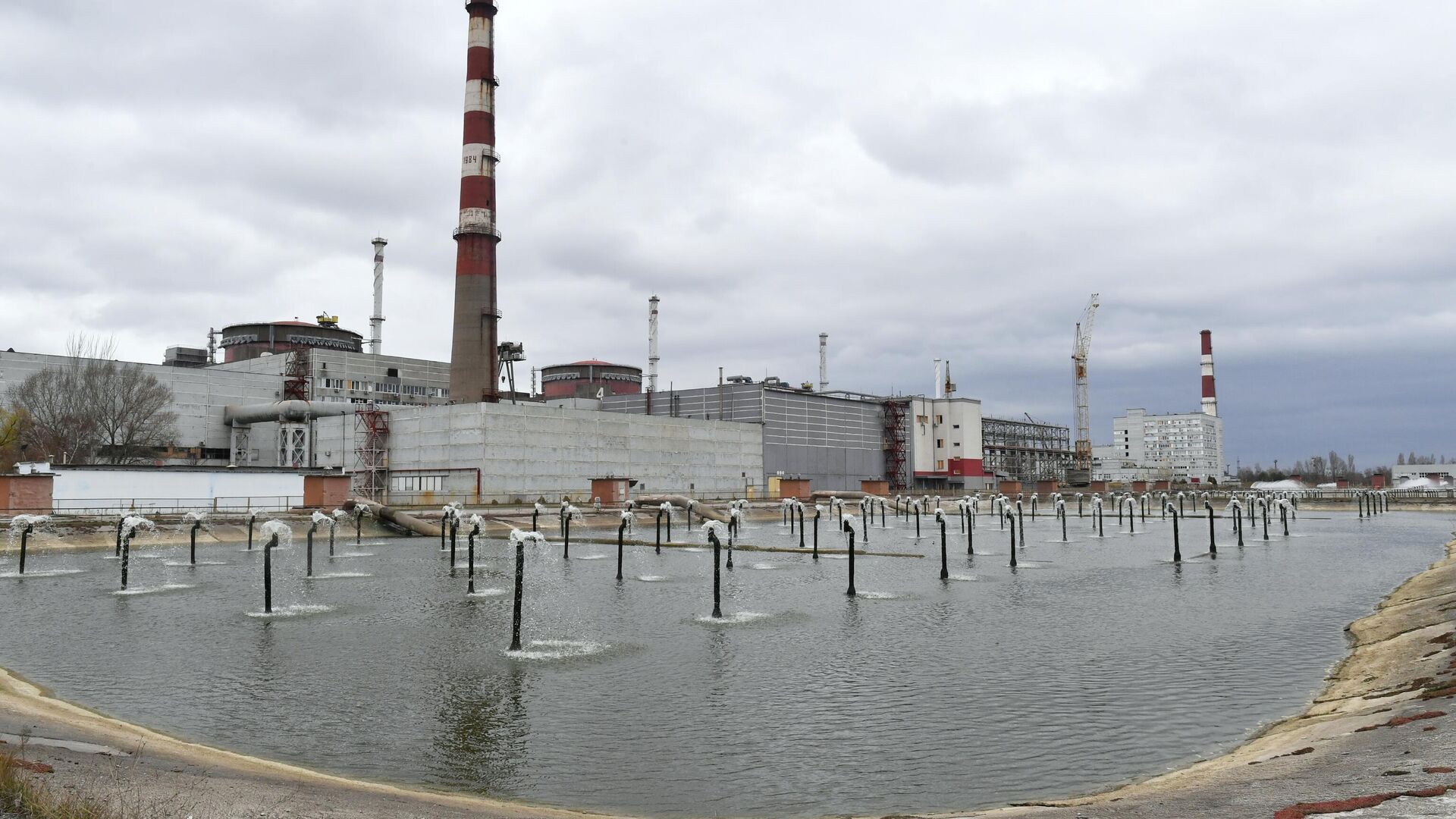Hot Topic
As of August 29, 2024, IAEA Director General Rafael Mariano Grossi is set to visit the Zaporozhye Nuclear Power Plant (ZNPP) for the fifth time (since September 2022) this week to assess the nuclear safety and security situation amid the intensifying conflict.
In this context, we would like to recall and highlight the commentary (April 2024) of Dr. Vladimir Orlov, Founding Director of PIR Center, and Mr. Sergey Semenov, PIR Center Research Fellow, as well as the one (March 2024) written by Mr. Sviatoslav Arov, PIR Center Research Fellow — Executive Assistant to Director.
Zaporozhye NPP: Escalation Zone
Arov, Sviatoslav A.
March 21, 2024
Last week, the situation around ZNPP escalated again — an explosive device dropped from a drone nearly caused the explosion of fuel storage. This is not the first — and unlikely to be the last — attack against ZNPP.
In March 2022, ZNPP came under the jurisdiction of Russia, while Moscow assumed the obligation to operate it. Ukraine was dissatisfied with such a development but found this situation useful to attract attention and create a favorable information agenda by launching attacks on the critical facilities and blaming Russia for them. However, Ukraine directly or indirectly recognized its involvement in the attacks. In October 2023, Kyrylo Budanov, the Head of the Defence Intelligence of Ukraine, noted in an interview “that his department’s special forces made three attempts to attack and seize the ZNPP.”
On the contrary, it was Russia that insisted on the presence of IAEA experts at ZNPP, while Kiev tried to resist such attempts by blocking IAEA initiatives to strengthen the security around ZNPP. As Russian Deputy Foreign Minister Aleksandr Grushko pointed out in May 2023, Ukraine first blocked “the draft trilateral agreements, then did the same with the two separate bilateral agreements Russia-IAEA and Ukraine-IAEA.”
Russia regularly notifies the IAEA of the situation around ZNPP by disseminating information circulars. These circulars contain detailed information about attacks on ZNPP or facilities adjacent to it and attach photos from the sites of events. Since September 2022, at the Russian invitation, four IAEA experts have been present at ZNPP, who, based on the results of the conducted inspections, transfer information to the IAEA Secretariat, which prepares materials for the IAEA Director General.
On March 14, ZNPP was again attacked. In response, Russia circulated an information circular to the IAEA, while the Agency issued a statement, but did not name the guilty. According to Mikhail Ulyanov, Permanent Representative of the Russian Federation to the International Organizations in Vienna, “the IAEA refers to its own Statute, which does not provide for the Secretariat to perform attributive functions.” Publicly, the IAEA refrains from any critical assessment of the situation around ZNPP, but Director General Rafael Grossi demonstrates interest in ensuring the safety of the facility and is doing his best for this purpose. In February 2024, he visited ZNPP for the fourth time, and on March 8, he held talks with Russian President Vladimir Putin and Aleksey Likhachev, Director General of Rosatom, in Sochi; however, earlier, Rafael Grossi met with Volodymyr Zelensky. As a result of both meetings, the Director General noted that “we must remember that ZNPP is located in a war zone. And concerns about its safety are growing.”
However, the probability of a large-scale accident at ZNPP is extremely unlikely. The plant consists of six VVER-1000-type power units, which are among the safest and most protected. In addition, all reactors are in shutdown mod; they are cooled down and depressurized. The reactors are designed to withstand both internal and external threats; the latter include a potential airplane crash, earthquake, homing, and tsunami. As some experts have noted, “it is virtually impossible to cause a serious accident by acting from the outside,” because the most radioactively hazardous facilities are the most heavily protected.
Not only nuclear reactors but also spent nuclear fuel (SNF) storage facilities could be at risk from a possible attack. SNF storage technologies protect against possible attacks and natural damages. Nevertheless, even assuming that an accident at an SNF storage facility results in the release of nuclear material, the scale of the accident would affect a relatively small area and would not result in a large-scale disaster.
Despite robust systems, the security of NPP depends heavily on humans. The only possible way to secure nuclear facilities in times of conflict is not to attack them. It is a seemingly basic principle, but not everyone is willing to abide by it.
Strikes on the Zaporozhye NPP — Nuclear and Diplomatic Terrorism
Orlov, Vladimir A.
Semenov, Sergey D.
April 18, 2024
In the absence of a universally recognized definition of terrorism, we have to resort to the most reliable source — the Russian Criminal Code. It defines terrorism as committing an explosion, arson, or other acts that terrify the population and create a danger of death, significant property damage, or other grave consequences for the purpose of destabilizing government activities or international organizations or influencing their decision-making.
There is also an international legal framework. According to the 2005 International Convention for the Suppression of Acts of Nuclear Terrorism, any person who damages a nuclear facility with the intention of forcing a state to commit any act is a criminal.
The uncompromising wording of Russian and international legislation leaves no loopholes. The Ukrainian strikes on the Zaporozhye NPP are terrorism. Nuclear terrorism. The conversation with those who plan and carry out attacks on the Zaporozhye NPP is short, and it is not for diplomats to conduct it. Dealing with the international group of Kiev’s accomplices is becoming more and more complicated. According to Amb. Mikhail Ulyanov, Permanent Representative of the Russian Federation to International Organizations in Vienna, the West is not ready to say anything negative about Ukraine.
In fact, it is not for the first time. Nuclear facilities have been attacked before with the consent (or at least with the knowledge) of the Western bloc. Examples include Israeli terrorist actions against Iranian nuclear scientists and sabotage aimed at disrupting Iran’s nuclear program. Or the Israeli strikes on an undeclared nuclear reactor allegedly under construction in Syria. It’s all about fighting unwanted regimes and states.
The PIR Center’s report (in Russian) Civilian Nuclear Facilities during Armed Conflicts prepared by our fellow colleague at PIR Center Sviatoslav Arov, concludes as follows: “Despite robust physical protection systems, the security of civilian nuclear facilities depends on a large extent on the human factor and the actions of people. The idea of attacking these facilities is reckless. Nuclear facilities, their infrastructure, and personnel should never be subject to armed attack. That is underlined in the Five Principles for Nuclear Safety and Security by IAEA Director General Rafael Grossi. The principles are concrete, non-politicized, and achievable. The only possible way to secure nuclear facilities during conflicts is not to subject them to deliberate physical attack. It is a seemingly basic principle, but it is neglected by some parties to conflicts. The Ukrainian attacks on Russia’s Zaporozhye NPP are unjustifiable and fraught with grave danger.” A fragment from the report with a chronology of events around the Zaporozhye NPP over the past two years is available on the PIR Center website (in Russian).
At the same time, the open discussion at the extraordinary meeting of the IAEA Board of Governors on April 11, 2024, shows that the West is not ready for any compartmentalization — the separation of security issues from general contradictions. Statements of the West that to the contra are just a camouflage, designed to smooth out the clumsiness of the position in the eyes of the global majority.
If Russia’s current geopolitical opponents are not ready to exert their influence on the Ukrainian top brass, the viability of the existing international nuclear security and nuclear nonproliferation regime is brought into question. And until this issue is clarified, there is no point in talking to the West, as it neglects existential topics for us since there can be no negotiation with the sponsors of terrorism.
This is a translation of the full version of the op-ed published in Kommersant Daily on April 16, 2024.
Key words: Zaporozhye NPP; Nuclear Security; Terrorism
NPT
F4/SOR – 24/09/03


